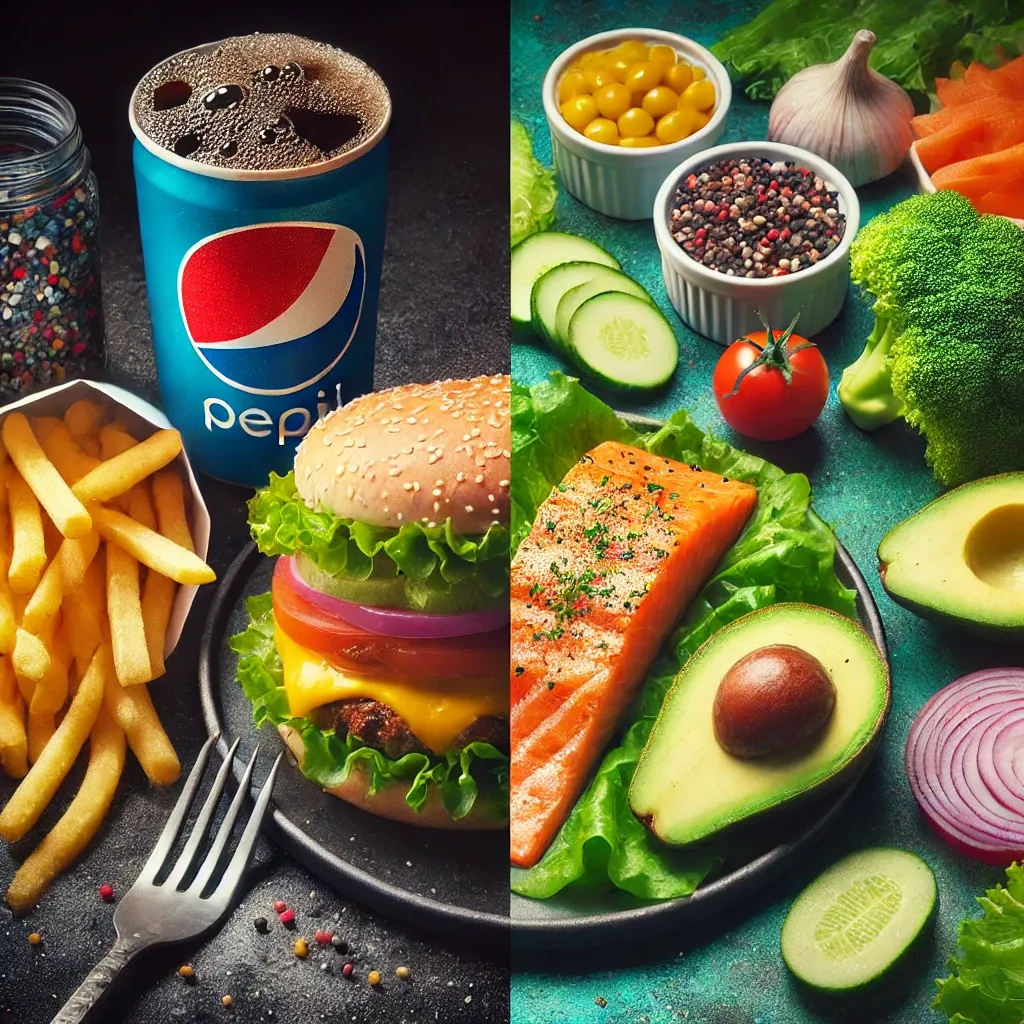
We’ve all heard it before: “Go low-fat for better health!” It’s been a buzz phrase for decades, popping up in everything from doctor’s advice to advertisements.
But can a low-fat diet really save your life, or is it just another fleeting health craze? To answer that, we need to dig deeper into the science, explore what actually works, and bust some myths.
The Low-Fat Craze: Fact or Fiction?
Let’s be real — many of us have fallen for the low-fat trap. I remember trying it myself a few years ago, thinking I was making the right choice for my health. My pantry was stacked with “low-fat” everything: chips, yogurt, even cookies.
Sounds great, right? But cutting fat didn’t necessarily make me feel healthier. In fact, I felt sluggish, constantly hungry, and often found myself reaching for snacks more often than before.
Why? Well, when we cut fat, we often replace it with something else — usually carbs or sugar. And that’s the problem.
The body needs healthy fats to function properly, from brain health to hormone regulation. So while ditching fat seems like a quick fix, it can have unintended consequences if we’re not careful.
The Role of Fat in the Body
Fat has been demonized for years, but it’s important to remember that not all fats are created equal. The body actually requires fat to absorb fat-soluble vitamins like A, D, E, and K. Fat also provides essential fatty acids, which help maintain cell membranes and support brain health.
Ever wonder why your thinking feels foggy on a low-fat diet? It’s because your brain needs fat to thrive!
And then there’s the heart health debate. While many believe that low-fat diets automatically equate to fewer heart problems, research shows that the type of fat matters more than the quantity.
Saturated and trans fats (often found in processed foods) are harmful, but unsaturated fats, like those in avocados, meat, butter, nuts, and olive oil, can actually help reduce the risk of heart disease. So, it’s not just about lowering fat — it’s about eating the right kinds.
So, Can Low-Fat Diets Save Your Life?
Yes — and no. Low-fat diets, if done correctly, can be part of a healthy lifestyle. Reducing unhealthy fats like trans fats and highly processed oils can certainly lower your risk of heart disease and certain cancers. But the key is balance.
Instead of focusing solely on cutting fat, aim for a diet that includes a variety of whole foods — proteins, vegetables, healthy fats, and complex carbs.
Let me paint a picture for you: Imagine your diet as a car. If you only focus on one component, like the tires (in this case, fat), you’re ignoring the engine, the brakes, the fuel. Without balance, the whole thing breaks down.
The same applies to your body. You can’t just strip out one thing — like fat — without considering the bigger picture of your overall nutrition.
My Personal Journey with Low-Fat Diets
Here’s where things get real. After a few months of trying the low-fat approach, I noticed that my energy levels were dipping, and my skin wasn’t as healthy as it used to be.
A close friend — who happened to be a nutritionist — explained that I wasn’t getting enough of the healthy fats my body needed. She recommended that I reintroduce foods like red meat, nuts, and avocado into my meals.
I’ll be honest — I was hesitant. It felt like I was “cheating” after all the effort I’d put into going low-fat. But within weeks of making that change, I felt a world of difference.
My energy came back, my cravings reduced, and my skin started to clear up. It was like my body had been shouting for the nutrients it was missing.
What’s the Real Solution?
The secret isn’t about cutting out fat — it’s about smart choices. In fact, a Mediterranean diet, which includes healthy fats, has been shown to lower the risk of heart disease and stroke.
Studies from Harvard Medical School suggest that diets rich in healthy fats, like omega-3s, can protect against inflammation, improve brain health, and support long-term wellness .
One thing is clear: there’s no one-size-fits-all approach to health. For some, lowering certain types of fat can lead to weight loss and improved cholesterol. For others, cutting too much fat can lead to fatigue, mood swings, and even weight gain as the body seeks out more calories to compensate.
Finding What Works for You
At the end of the day, life — and health — is about balance. You don’t need to throw the baby out with the bathwater when it comes to fats. Instead of jumping on the low-fat bandwagon without thought, try focusing on eating whole, nutrient-dense foods.
Avoid overly processed, “low-fat” alternatives that may be loaded with sugars and additives. Your body will thank you for it.
So, can low-fat diets save your life? The answer depends on how you define “low-fat” and how you approach it. Choose your fats wisely, and you’ll be on your way to a healthier you — not a sluggish, hangry version of yourself rummaging through the fridge at 10 p.m. for that “fat-free” ice cream.
In the end, sometimes the simplest advice is best: eat real food, not too much, and make sure it’s balanced. After all, as the saying goes, “Too much of a good thing can be bad” — but too little of the right thing can be just as harmful.









